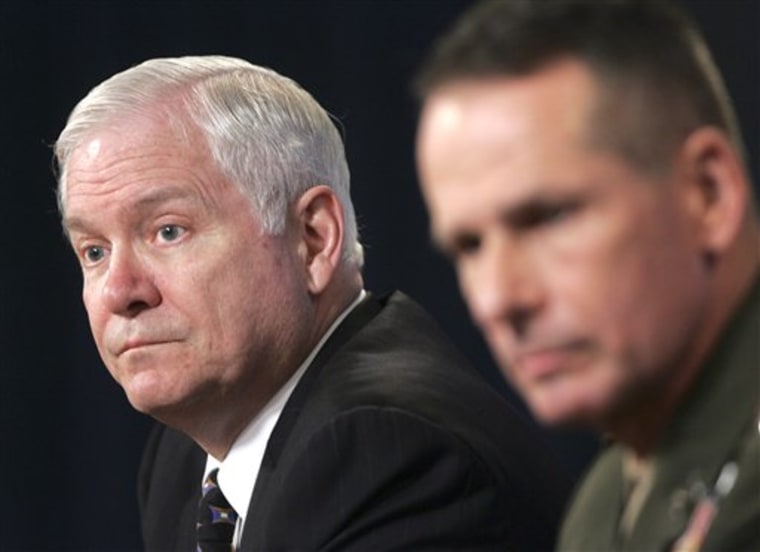A memo from a top House Democrat says party leaders must not yield to White House pressure on Iraq and should cast President Bush as increasingly detached from public opinion.
Bush has said he will not negotiate with Democrats on legislation that would finance the wars in Iraq and Afghanistan through September if it sets an end date for the Iraq war. Holding only a narrow majority in Congress, Democrats do not have enough votes to override the president's veto.
In a memo to party leaders, Rep. Rahm Emanuel says that so long as Democrats continue to ratchet up the pressure on Bush, the president loses ground.
If Bush continues to refuse to negotiate, his "continued insistence on a blank check for the war will only further damage his standing with the American people," wrote Emanuel, D-Ill., a member of the House Democratic leadership.
Negotiation negotiations
Emanuel said he believes Democrats should continue to push to negotiate with the president. Despite differences, "there are areas of agreement that should offer fertile ground for negotiation and compromise," he wrote.
Senate Majority Leader Harry Reid was in lock step Thursday with the approach, insisting Democrats will send Bush a bill by the end of the month that would include some sort of timetable for withdrawing troops.
"Certainly we're not going to back down on what we think is right for the country," said Reid, D-Nev.
Reid said he will accept the president's invitation to meet next week at the White House, along with other Republican and Democratic leaders. But, he said, he will insist the meeting be a two-way discussion.
Bush has repeatedly urged the American public and lawmakers to give his troop increase in Iraq a chance to work.
"It is in our interest to help this young democracy be in a position so it can sustain itself and govern itself and defend itself against these extremists and radicals," Bush said Thursday in the White House's Roosevelt Room after meeting with educational leaders.
Extensions for predictability sake
Acting Army Secretary Pete Geren told lawmakers Thursday that a decision to keep troops in combat longer was based on recommendations from rank-and-file soldiers who wanted more predictability.
Defense Secretary Robert Gates announced a day earlier that he planned to extend troops' 12-month tours in Iraq and Afghanistan into 15-month stays. The Pentagon says lengthier stays in Iraq would allow Bush's 30,000 troop buildup in Baghdad to last for another year, if needed.
Soldiers said they would be willing to brave extended tours in Iraq or Afghanistan if it meant being able to tell their families they would be home for a full year before being sent back, Geren said.
Predictability was a more important factor "than the impact of the additional three months on the tour," Geren said. "It's a judgment call, but it's based on the feedback from the input from soldiers, from (noncommissioned officers) right up to the top leaders in the Army."
Democrats are seizing on the Pentagon's decision to extend troops' combat tours as evidence that Bush's war policy is failing.
"My view is that the strategy doesn't justify continuing abuse" of soldiers "who have put their lives literally in the hands of our leadership," said Sen. Jim Webb, D-Va. "I think there are limits to human endurance and I think there are limits to what families can put up with."
